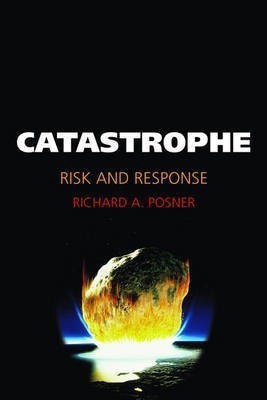Catastrophe(English, Hardcover, Posner Richard A.)
Quick Overview
Product Price Comparison
Catastrophes, whether natural or man-made, that could destroy the human race are often dismissed as alarmist or fanciful, the stuff of science fiction. In fact, the risk of such disasters is real, and growing. A collision with an asteroid that might kill a quarter of humanity in 24 hours and the rest soon after; irreversible global warming that might flip, precipitating "snowball earth;" voraciously replicating nanomachines; a catastrophic accident in a particle accelerator that might reduce the earth to a hyperdense sphere 100 meters across; a pandemic of gene-spliced smallpox launched by bioterrorists; even conquest by superintelligent robots - all these potential extinction events, and others, are within the realm of the possible and warrant serious thought about assessment and prevention. They are attracting the concern of reputable scientists - but not of the general public or the nation's policymakers. How should the nation and the world respond to disaster possibilities that, for a variety of psychological and cultural reasons, people find it hard to wrap their minds around?Richard Posner shows that what is needed is a fresh, thoroughly interdisciplinary perspective that will meld the insights of lawyers, economists, psychologists, and other social scientists with those of the physical sciences. Responsibility for averting catastrophe cannot be left either to scientists or to politicians and other policymakers ignorant of science. As in many of his previous books, Posner brings law and the social sciences to bear on a contemporary problem - in this case one of particular urgency. Weighing the risk and the possible responses in each case, Posner shows us what to worry about and what to dismiss, and discusses concrete ways of minimizing the most dangerous risks. Must we yield a degree of national sovereignty in order to deal effectively with global warming? Are limitations on our civil liberties a necessary and proper response to the danger of bioterror attacks? Would investing more heavily in detection and interception systems for menacing asteroids be money well-spent? How far can we press cost-benefit analysis in the design of responses to world-threatening events? Should the institutional framework of science policy be altered?Do we need educational reform? Is the interface of law and science awry? These are but a few of the issues canvassed in this fascinating, disturbing, and necessary book.


